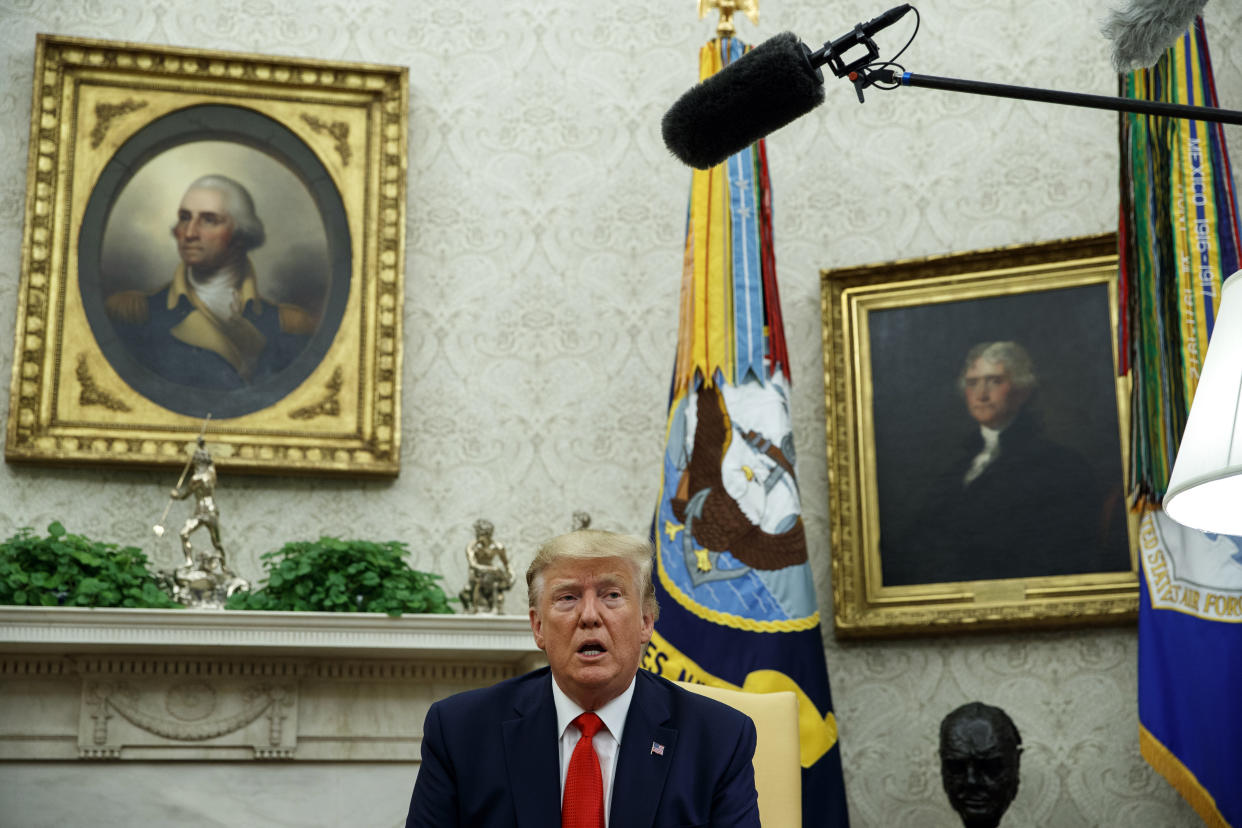Trump tariffs cost American businesses $6.8 billion in July
In a gesture of goodwill President Trump said Wednesday he is delaying the planned tariff rate increase from 25% to 30% on $250 billion in imports from China set to take effect on Oct. 1. The new tariff hikes will instead begin on Oct. 15. Trump said he is taking this action at the request of the Vice Premier of China Liu He; Oct. 1 marks the 70th anniversary of the People’s Republic of China.
China may have paved the way for the start of a trade truce ahead of planned talks as it has also shown a willingness to waive tariffs on U.S. products starting Sept. 17.
The slight reprieve may be little comfort to American businesses that have had to struggle with trade uncertainties. Trump’s tariff policy has cost American businesses $6.8 billion in July, a 62% increase from the same period last year, according to Tariffs Hurt the Heartland, an alliance of more than 150 associations representing every sector of the U.S. economy.
Despite assurances by Trump and White House trade adviser Peter Navarro that China is paying “the full burden” of these tariffs, U.S. businesses are paying the highest tariffs in history, and that painful financial reality will only get worse if Trump follows through on his threats of further tariffs.
The $6.8 billion businesses paid in July only reflects the tariff rate increase from 10% to 25% that occurred on May 10 on $250 billion in imports from China. Trump has threatened two more rounds of tariffs. On Sept. 1, Trump’s order to place 15% tariffs on roughly $112 billion in imports from China went through. And on Oct. 15, Trump plans to implement 30% tariffs on the $250 billion in Chinese goods currently being tariffed at the 25% rate.

“These historic tariff increases are what’s causing significant uncertainty for American employers, leading to less investment, higher prices and fewer job opportunities,” Tariffs Hurt the Heartland spokesman Jonathan Gold said in a statement. “You can’t budget for a double-digit tariff increase, and you can’t plan a business when you’re living tweet-by-tweet. The administration needs to use upcoming negotiations to end a trade war that truly has no winners."
In June, American businesses paid $6 billion in tariffs, a 74% increase from the same period in 2018. Trump-imposed tariffs cost them $3.4 billion of that total amount.
Job losses
The uncertainty surrounding the trade war and its outcome has led businesses to cut back on hiring and potentially threatening the record-low unemployment rate, one of the few positive economic benchmarks Trump can point to. Moody’s Analytics estimates that Trump’s tariff policy has already cost the U.S. economy 300,000 jobs and could rise to 450,000 jobs later this year once the full effect of the additional tariffs kick in.
The retail, manufacturing, and agricultural sectors have faced the biggest impact. The manufacturing sector shrunk for the first time in three years and the August jobs report reflected a decline in 11,000 retail workers. China’s retaliatory tariffs on American-made goods has resulted in 13 straight months of decline in exports compared to the same period last year.
Taxpayer burden
Tariffs Hurt the Heartland estimates that the U.S. trade war with China has cost Americans over $30 billion in additional import tariffs from the start of the trade war to July.
A recent report from the National Foundation for American Policy Tariffs estimated the tariffs’ cost American households to come to more than $2,000 per year in 2020.
More from Sibile:
Why a Trump tax cut is no longer a winning campaign strategy
Trump’s stimulus hopes may get frustrated by Congress, 2020 politics
For first time since Trump elected, more voters say economy is worsening
Why more than half of millennials get denied credit
Why Trump’s immunity to big market losses spells trouble for Wall Street
Read the latest financial and business news from Yahoo Finance
Follow Yahoo Finance on Twitter, Facebook, Instagram, Flipboard, LinkedIn, YouTube, and reddit.
